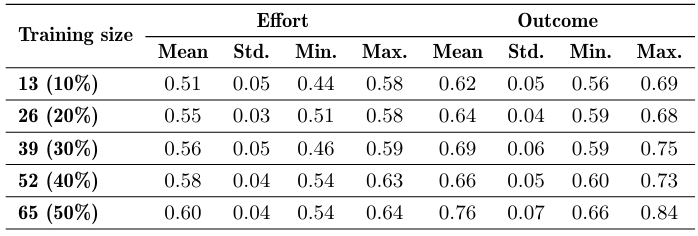Table of Links
2. Background
2.1 Effective Tutoring Practice
2.2 Feedback for Tutor Training
2.3 Sequence Labeling for Feedback Generation
2.4 Large Language Models in Education
3. Method
3.1 Dataset and 3.2 Sequence Labeling
3.3 GPT Facilitated Sequence Labeling
4. Results
6. Limitation and Future Works
APPENDIX
B. Input for Fine-Tunning GPT-3.5
C. Scatter Matric of the Correlation on the Outcome-based Praise
D. Detailed Results of Fine-Tuned GPT-3.5 Model's Performance
D. DETAILED RESULTS OF FINE-TUNED GPT-3.5 MODELS’ PERFORMANCE

This paper is available on arxiv under CC BY 4.0 DEED license.
Authors:
(1) Jionghao Lin, Carnegie Mellon University ([email protected]);
(2) Eason Chen, Carnegie Mellon University ([email protected]);
(3) Zeifei Han, University of Toronto ([email protected]);
(4) Ashish Gurung, Carnegie Mellon University ([email protected]);
(5) Danielle R. Thomas, Carnegie Mellon University ([email protected]);
(6) Wei Tan, Monash University ([email protected]);
(7) Ngoc Dang Nguyen, Monash University ([email protected]);
(8) Kenneth R. Koedinger, Carnegie Mellon University ([email protected]).

